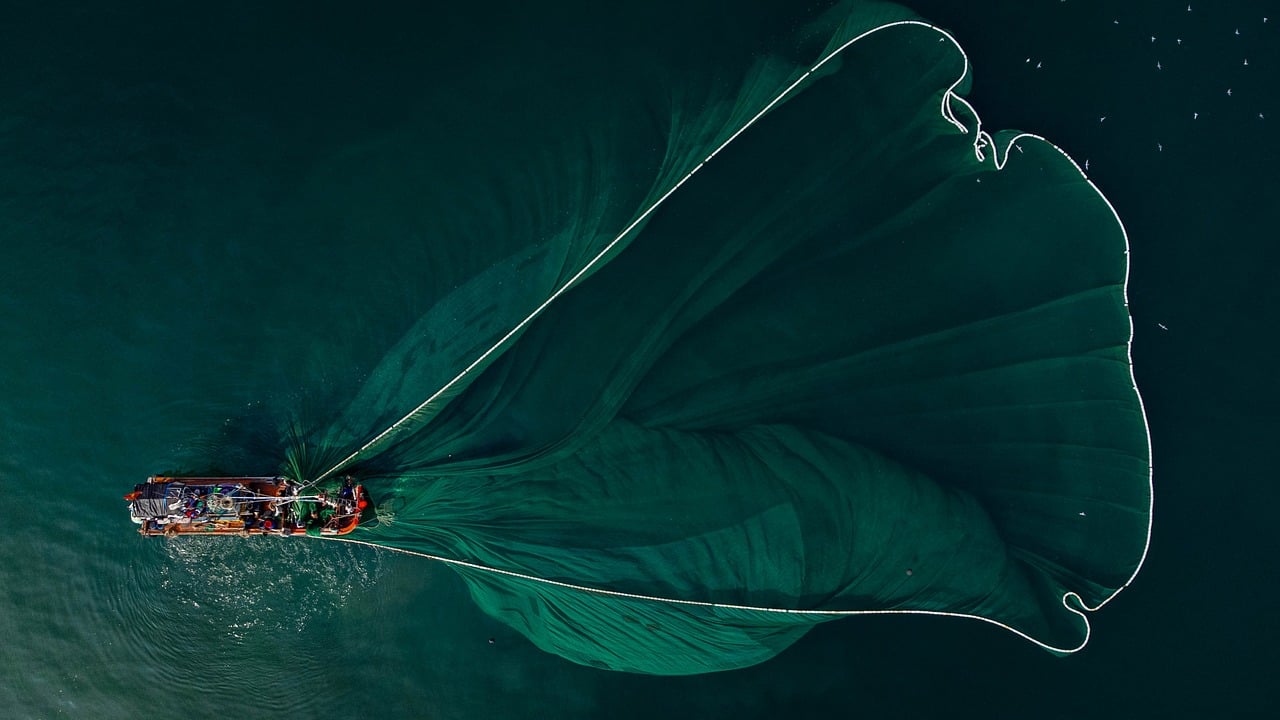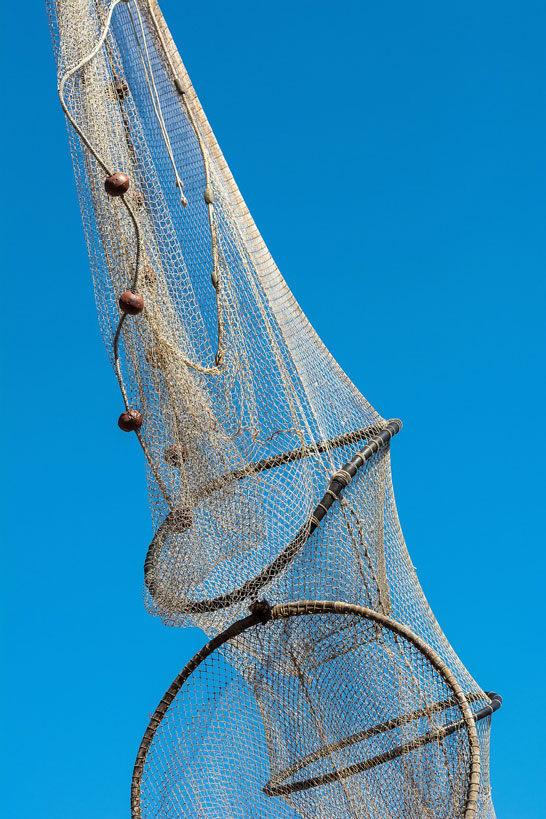Protect The Oceans and Safeguard the Future of Seafood
Access premium markets and differentiate your products with the globally recognized MSC sustainable seafood label.
























Driving Positive Change for Your Business and Future Generations
Through our unique certification program, we help to ensure that fisheries meet the highest standards of sustainability, allowing consumers to make informed choices, while also driving growth for certified businesses.
Nielsen found that products with sustainability labels experienced a sales growth of 5.6% in 2020, outpacing the growth of conventional products.
A survey conducted by the Marine Stewardship Council found that 84% of consumers have greater trust in seafood products carrying the MSC ecolabel
Research from the University of Santa Barbara, found that sustainable fisheries create on average 10% more jobs than non-certified fisheries.
There is an Urgent Need for Sustainable Fishing Practices

Overfishing has led to a significant decline in global fish stocks, with approximately 33% of fish stocks being overfished and an additional 60% being fished at maximum capacity, according to the Food and Agriculture Organization of the United Nations (FAO).
The World Bank estimates that overfishing costs the global economy approximately $83 billion annually
The United Nations estimates that over 200 million people worldwide depend on fishing-related activities for their income, highlighting the social and economic importance of sustainable fishing practices.
Fish Supplies Used to be Plentiful
The world need's businesses and consumers to make changes before our ecosystems are fully depleted


Real Business Benefits to Obtaining an MSC Certification
Apart from protecting the ocean and safeguarding seafood supplies for the future, you can also improve your bottom line.
Access to New Markets
MSC-certified products gain access to premium markets and buyers who prioritize sustainability. This opens up opportunities for businesses to expand their customer base, increase sales revenue, and diversify their distribution channels.

Risk Mitigation
MSC certification helps businesses mitigate risks associated with environmental regulations, market demands, and consumer preferences. By adhering to rigorous sustainability standards, businesses can avoid potential fines, legal issues, and reputational damage stemming from unsustainable fishing practices.

Consumer Trust and Loyalty
MSC certification builds consumer trust and loyalty by providing transparent and verifiable assurances of sustainable seafood sourcing. Most certified businesses report increased repeat purchases as customers are confident what they are buying is responsibly produced.
Promotional Opportunities
Most certified businesses report being able to better market their products once they have received the MSC label. It can help your business stand out and draw in new customers.

It's Time to Have Your Hard Work Recognised
Unlock the Rewards of Responsible Fishing with an MSC Sustainability Certification

It's Time to Have Your Hard Work Recognised
Unlock the Rewards of Responsible Fishing with an MSC Sustainability Certification

Why Choose MSC?
We understand that choosing the right certification partner can be daunting, but the Marine Stewardship Council (MSC) stands as one of the top organizations in the industry. With a commitment to transparency, credibility, and continuous improvement, we have earned the trust of businesses worldwide.
Our standards undergo rigorous reviews consistent with best practice codes and with international recognition, our certification meets the highest standards and is considered a benchmark for sustainability in the seafood industry.

We regularly review and update our standards to reflect evolving industry practices and scientific knowledge

We engage a diverse range of stakeholders, including academics, NGOs, governments, and industry experts in our process

Our standards align with global best practices recommended by leading organizations such as the UN FAO, ISEAL, and GSSI
We've Certified Over Nine Hundred Fisheries














We Treat All Businesses Equally
Big or small, you can be assured of the same standard when obtaining certification
Transparent Processes
MSC ensures fairness by involving stakeholders in standards development and decision-making, fostering transparency and inclusivity.
Science-Based Criteria
Certification decisions rely on objective, measurable, and updated scientific criteria, ensuring fairness and consistency.
Independent Assessments
Accredited bodies conduct impartial audits, verifying compliance with MSC standards for fair and rigorous assessments.
Equitable
Access
MSC supports fisheries of all sizes, offering assistance and capacity-building initiatives for fair and inclusive certification opportunities.
Our Promise To You

At the Marine Stewardship Council, we are committed to partnering with businesses like yours to ensure a sustainable future for our oceans and seafood supply. Our promise to you is one of transparency, integrity, and collaboration.
We provide you with the assurance that your products meet the highest standards of sustainability and quality.
Together, we can make a difference in marine conservation and support the livelihoods of coastal communities while meeting the growing demand for responsibly sourced seafood
Ready to take a Stand for Sustainability and Set Your Business Apart?
Unlock New Opportunities and Join the Movement to Protect Our Oceans
You'll be Joining Hundreds of Other Satisfied Businesses
Ready to Get MSC Certified?
Get in touch and our team will support you every step of the way
.png)
Still Have Questions? We've Got Answers!
Find Answers to the Most Common Inquiries About the MSC Certification
MSC certification is available to all wild-capture fisheries, regardless of their size, scale, ecology, geography or technology.
These include single species, multi-species, trawl, long line, hand raked, pots, freshwater, marine, inshore, offshore, demersal, pelagic and enhanced fisheries.
Ineligible fisheries are those that:
- Target amphibians, reptiles, birds and/or mammals
- Use destructive fishing practices (such as poison or explosives).
- Have been successfully convicted for forced labour violations within the last two years.
- Are conducted under a controversial unilateral exemption to an international agreement.
- Are purely aquaculture (although some forms of enhanced fishery are eligible for assessment).
- Have been convicted of shark finning violations within the last two years.
Yes.
To be eligible for MSC certification, enhanced fisheries must meet criteria based on:
- The link to and maintenance of a wild stock.
- How the fish are fed and looked after.
- The impact the enhanced fishery has on the habitats and wider ecosystem.
Assessments are conducted by accredited independent certifiers - Conformity Assessment Bodies (CABs). You can use the below list to find contact details for a CAB or visit the ASI website.
Certification is paid for by the fishery client. The MSC does not receive payment, only the certification body you have chosen. Anecdotal information from certified fisheries suggests the cost can vary from USD $15,000 - $120,000.
The cost will depend on:
- The complexity of your fishery.
- The availability of information.
- The level of stakeholder involvement.
Assessment against the MSC Fisheries Standard can take 12 to 18 months.
The cost will depend on:
Small scale and developing country fisheries may not have access to the detailed research data that underpins an MSC assessment. The MSC has developed a framework for these fisheries called the Risk Based Framework.The cost will depend on:
Fisheries are scored against the three principles of the MSC Fisheries Standard:
- Principle 1 Sustainability of the stock: fisheries must operate in a way that allows fishing to continue indefinitely, without overexploiting the resource
- Principle 2 Ecosystem impacts: Fishing operations need to be managed to maintain the structure, productivity, function and diversity of the ecosystem upon which the fishery depends, including other species and habitats
- Principle 3 Effective management: All fisheries need to meet all local, national and international laws and have an effective management system in place
You will join a collective of over 600 engaged fisheries, supplying the world with over 20,000 sustainable seafood products.
Your certifier is required to carry out audits every year of the five-year certification period. Audits will examine any significant changes that might have occurred either in the physical environment or in the management of the fishery.








